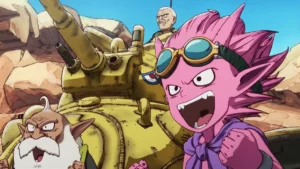Red Right Hand 2024 Movie Review

Sibling filmmakers Eshom and Ian Helms deliver a nostalgic nod to 1970s exploitation films with their latest Deep South crime thriller, “Red Right Hand,” a throwback so authentic it could easily bear the American International Pictures logo. Led by Orlando Bloom, sporting a hard-earned Southern drawl, the film doesn’t break new ground in its well-trodden genre. However, its ample dose of bloody action and intense shootouts promises to satisfy genre enthusiasts, likely finding its audience more readily through VOD than at drive-in theaters.
Bloom embodies the lead character, Cash, whose rugged masculinity is established early on with shirtless workouts that showcase his chiseled physique. Despite his tough exterior, Cash reveals a softer side, still grappling with the loss of his sister to drugs while caring for his troubled brother-in-law, Finney, and resilient niece, Savannah. However, Cash’s past as an enforcer for local crime boss Big Cat, played by Andie MacDowell, resurfaces, setting off a chain of violent events.
As Cash is drawn back into Big Cat’s world to settle his brother-in-law’s debts, the film escalates into a series of brutal confrontations, including a botched drug deal turned bloodbath. MacDowell’s portrayal of the ruthless antagonist, while earnest, falls short of conviction, leaving the film’s central conflict feeling somewhat underwhelming. Despite occasional sparks of wit in the screenplay by Jonathan Easley, bolstered by Garret Dillahunt’s portrayal of the town’s conflicted preacher, the film’s sluggish pacing and occasional miscasting prevent it from fully realizing its potential.
In the end, “Red Right Hand” offers a serviceable entry into the crime thriller genre, buoyed by Bloom’s solid performance but hindered by its lackluster execution and missed opportunities for depth. While it may not reach the heights of its genre predecessors, it provides enough visceral action to entertain audiences seeking a nostalgic throwback to gritty ’70s cinema.




